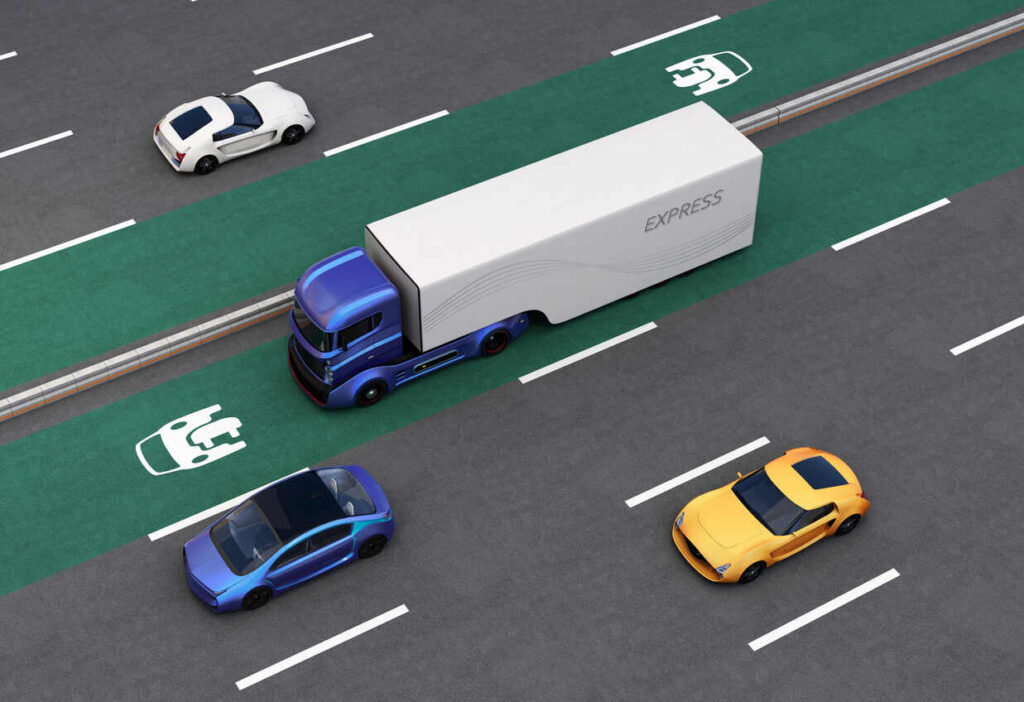The future of freight transportation is here—and it’s rolling down I-45. Aurora Innovation has launched the first-ever fully driverless commercial trucking service between Houston and Dallas. This technological leap may promise efficiency, but it also raises serious questions about safety, accountability, and what happens when something goes wrong on the road.
The Innovation: Autonomous 18-Wheelers in Commercial Operation
Aurora Innovation made history this month by completing the first autonomous freight delivery with no human driver on board. Using its proprietary Aurora Driver system, the company delivered frozen goods between Houston and Dallas in a self-driving semi-truck.
The Aurora Driver technology combines advanced software, sensors, cameras, and radar to create what the company claims is nearly 360-degree visibility. It can detect hazards more than 1,600 feet ahead and aims to outperform human drivers by eliminating distractions, fatigue, and reaction delays. After millions of miles of testing and over a decade of development, Aurora has begun regular commercial operations and plans to expand its routes to El Paso and Phoenix by the end of 2025.
The Societal Impact: Innovation Brings Risk Along with Reward
While Aurora promotes this technology as a safety breakthrough, society must grapple with the risks of removing human drivers from 80,000-pound commercial vehicles.
Self-driving trucks introduce new concerns for Texas motorists:
- Who is responsible when the system fails?
- How will the public know if a vehicle’s sensors malfunctioned?
- What if software decisions lead to a crash?
No technology is flawless. Even with advanced features, driverless trucks can still make errors in judgment, fail to adapt to unpredictable road conditions, or suffer from technical malfunctions. When a collision occurs, victims may face devastating injuries or loss without a clear understanding of who’s at fault.
Legal Accountability: Who Can Be Held Liable After a Crash?
When a crash involving a driverless big rig results in injury or death, it’s critical to investigate all potentially liable parties. Unlike traditional crashes, where fault often rests with the driver, autonomous trucking cases require deeper analysis.
Possible liable parties include:
- Aurora Innovation is the manufacturer and operator of the autonomous technology.
- The trucking company may be responsible for maintenance or deployment decisions.
- Third-party software or hardware vendors, if a component failure contributed to the crash.
- Shipping companies, if unreasonable delivery schedules played a role in unsafe operation.
Because the legal landscape for autonomous vehicles is still evolving, having an experienced personal injury attorney is essential for holding these parties accountable.
How Glen Larson Law Injury Attorneys Can Help
If you or someone you love has been injured in a crash involving an autonomous truck in Texas, Glen Larson Law Injury Attorneys is here to help you pursue justice. These cases require technical knowledge, access to experts, and a strategic legal approach to uncover how and why the crash occurred.
We challenge powerful tech and transportation companies to demand answers and compensation for those harmed by negligence, system failures, or unsafe deployments.
Call (512) 883-0277 or contact us online today to schedule a free consultation. We pursue dedicated, driven results for our clients, and there is never a charge to talk to an attorney. We stand ready to help you.






